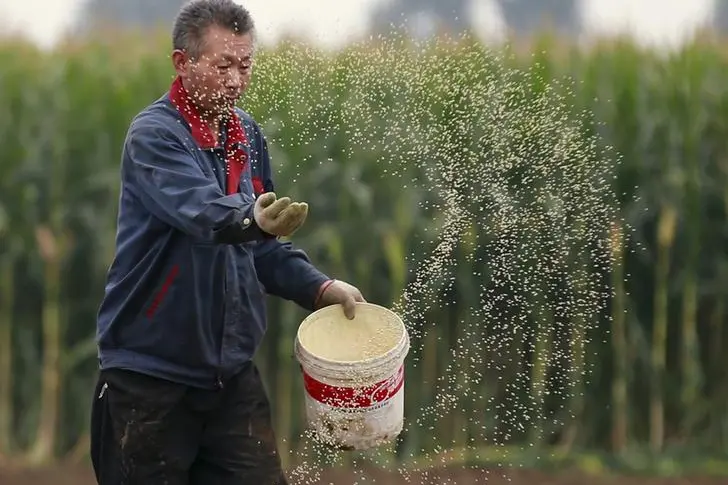PHOTO
Dozens of U.S. agriculture industry representatives gathered in Beijing on Thursday to meet Chinese counterparts amid growing U.S. efforts to bolster farm trade even as political ties between their two countries remain strained.
A delegation from 11 groups including the U.S. Soybean Export Council, U.S. Grains Council and U.S. Wheat Associates is visiting a week after Chinese grain buyers signed non-binding agreements in Iowa to buy billions of dollars worth of produce, mostly soybeans, the first such signing since 2017.
This week's visit, the likes of which had become rare due to bilateral tensions and three years of Chinese COVID-19 border controls, comes ahead of an expected meeting between President Xi Jinping and President Joe Biden in San Francisco this month.
"We've got a big complicated relationship, but agriculture is the ballast in the relationship," Nicholas Burns, U.S. ambassador to China, told the gathering of U.S. and Chinese industry officials.
U.S. Grains Council officials visited China's commerce ministry earlier on Thursday and raised China's anti-dumping and anti-subsidy measures against U.S. imports of distillers dried grains (DDGS), a protein-rich byproduct from ethanol production that is fed to animals.
"They suggested we talk with the domestic industry here to have them give their support in the need of the product and they brought up the fact that they'd recently dropped the anti-dumping case on Australian barley, so whether that shows some hope for U.S. DDGs, possibly. I'm not sure," said Cary Sifferath, vice president of the U.S. Grains Council.
Oilseeds and grains are the top U.S. export to China, accounting for $25.4 billion last year, far ahead of other goods such as semincoductors, but Brazil has been eating into the U.S. share of the Chinese market after harvesting bumper crops of soybeans and corn.
China has been pushing to diversify its import sources in the years since former U.S. President Donald Trump launched a bruising trade war and amid rising geopolitical risks, opening its market to Brazilian corn late last year.
Imports of Brazilian soybeans are up 18% in the first nine months of 2023 compared with the same period last year, compared with an 8% increase in U.S. arrivals. Almost 4 million tons of Brazilian corn has reached China, with more on the way.
The delegation, the industry's largest to China since 2016, will travel to Shanghai for next week's annual China International Import Expo, where the USDA is hosting a pavilion for the first time since the event started in 2018. (Reporting by Dominique Patton Editing by Tony Munroe, Robert Birsel)





















